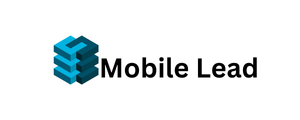In today’s digital age, reverse phone lookup tools have become widely popular for identifying unknown callers, verifying contact information, or screening potential fraud. These tools allow users to enter a phone number and receive information about the owner, such as their name, location, or service provider. But how reliable and accurate are these tools? This article explores the accuracy of reverse phone lookup services, factors that influence their reliability, their limitations, and best practices for users.
What Is a Reverse Phone Lookup?
A reverse phone lookup is a service or tool that allows you to input a phone number to retrieve information about the person or entity that owns it. Unlike a traditional phone directory, where you look up a name to find a number, this service works backwards—from number to identity.
Reverse lookup tools are used for:
Identifying unknown callers or missed calls.
Checking whether a phone number is associated with spam or scams.
Finding owner details for verification or security.
Screening calls for recent mobile phone number data businesses or personal safety.
How Do Reverse Phone Lookup Tools Work?
Reverse lookup services gather data from multiple sources, including:
Public directories and databases: Government, telecom, or business directories that list phone numbers.
Social media and online platforms: Phone numbers linked to social profiles or posts.
Commercial data brokers: Companies that collect and sell contact information.
Telecom carrier how to use phone number lists for crisis communication data (sometimes): Depending on partnerships and regulations.
When a user submits a phone number, the tool cross-references it against these databases to provide details such as the owner’s name, address, carrier, or whether it’s a known spam number.
Factors Affecting Accuracy of Reverse Phone Lookup Tools
The accuracy depends heavily on the quality, completeness, and recency of the underlying data.
Some databases may be outdated or incomplete, leading to incorrect or missing information.
Phone numbers change owners, carriers, or locations regularly, and databases may not update promptly.
Type of Number
Landline numbers often have whatsapp filte higher accuracy because they are usually tied to fixed addresses.
Mobile numbers are more difficult to track because they are portable, frequently reassigned, or used by individuals rather than businesses.
Geographic Coverage
Some lookup tools have better data coverage for specific countries or regions.
Tools focused on the U.S. or Europe may be less accurate for numbers from other countries.
Privacy Laws and Restrictions
Laws such as GDPR in Europe restrict the availability and sharing of personal data, limiting the scope of information that lookup tools can provide.
Many countries limit access to mobile subscriber data to protect user privacy, affecting accuracy.
Free vs Paid Services
Free reverse lookup tools often provide limited or outdated information.
Paid services may have access to larger, more frequently updated databases, improving accuracy but not guaranteeing it.
